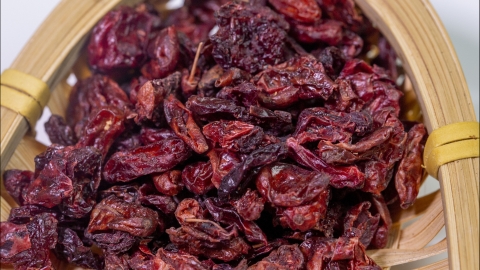Which three types of people should not consume Cornus officinalis (Chinese cornel)?
Generally speaking, there is no specific saying that "which three types of people cannot eat cornus fruit (Shanzhuyu)." However, individuals with excessive internal heat and dampness, those experiencing difficult and painful urination, constipated individuals, people with colds accompanied by fever, and those allergic to cornus fruit should avoid consuming it. Cornus fruit is warm in nature and sour in taste, possessing functions of nourishing the liver and kidneys and having astringent and consolidating effects. Consumption by these groups may exacerbate their existing discomforts. Detailed explanations are as follows:

1. Individuals with internal damp-heat: Those with internal damp-heat commonly exhibit symptoms such as bitter taste in the mouth, yellow and greasy tongue coating, and heavy limbs. Cornus fruit tends to be nourishing and may hinder the elimination of damp-heat, possibly leading to increased accumulation of damp-heat and worsening symptoms like bitter taste and heaviness in limbs, which is detrimental to bodily balance.
2. Individuals with painful, burning, or difficult urination: These individuals often suffer from urinary difficulties and burning pain due to heat in the lower jiao (lower burner). The astringent effect of cornus fruit may worsen urinary retention, making symptoms of painful and difficult urination more pronounced and affecting smooth urination.
3. Constipated individuals: Cornus fruit has astringent and binding properties that can reduce intestinal motility. Since constipated individuals already have difficulty passing stools, consuming cornus fruit may further increase intestinal astringency, leading to harder stools and more difficulty in defecation, which is not conducive to improving intestinal function.
4. Individuals with colds accompanied by fever: During a fever caused by a cold, the body needs to expel external pathogens. The nourishing and astringent effects of cornus fruit may trap the pathogen inside the body, hindering its elimination, prolonging the duration of the cold, and making it difficult for the fever to subside, thus affecting recovery.
5. Individuals allergic to cornus fruit: Some people may be allergic to certain components in cornus fruit. After consumption, they may experience allergic reactions such as skin itching and rashes. In severe cases, symptoms may include respiratory discomfort. These individuals must strictly avoid consumption to prevent allergic reactions.
In daily life, before choosing to consume cornus fruit, one should assess whether it is suitable based on their own physical condition. It is also important to select appropriate ingredients according to one's constitution to avoid bodily discomfort caused by improper consumption.




